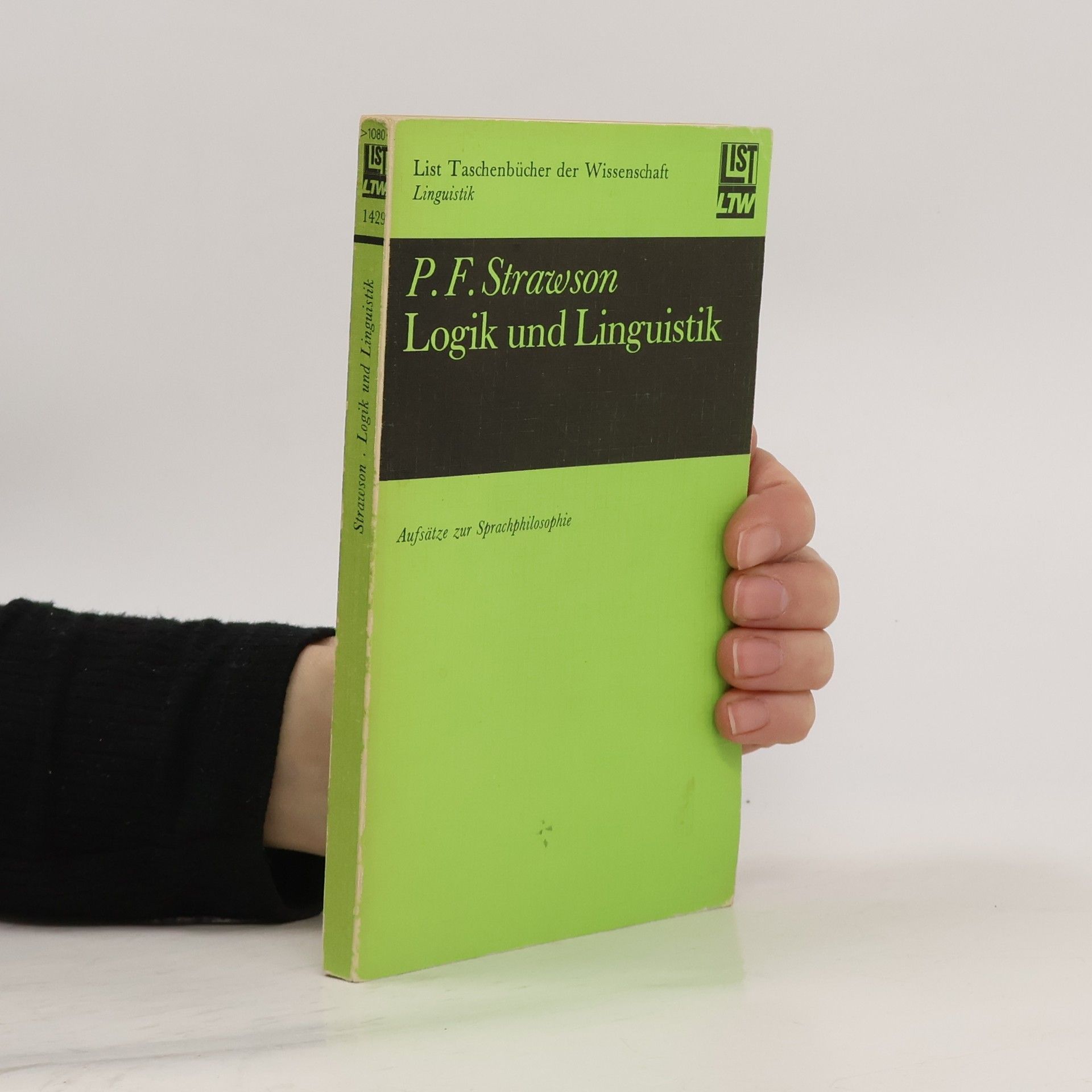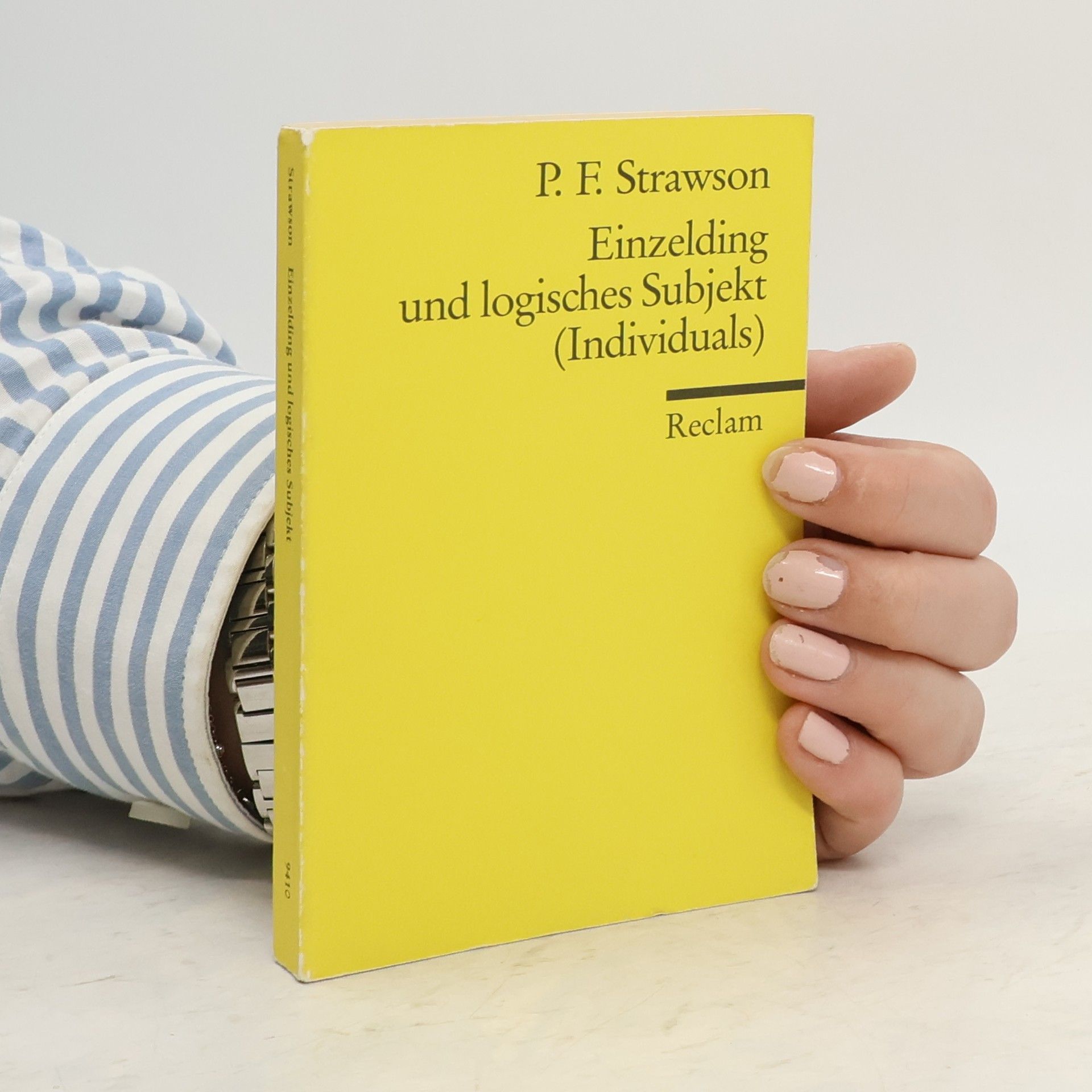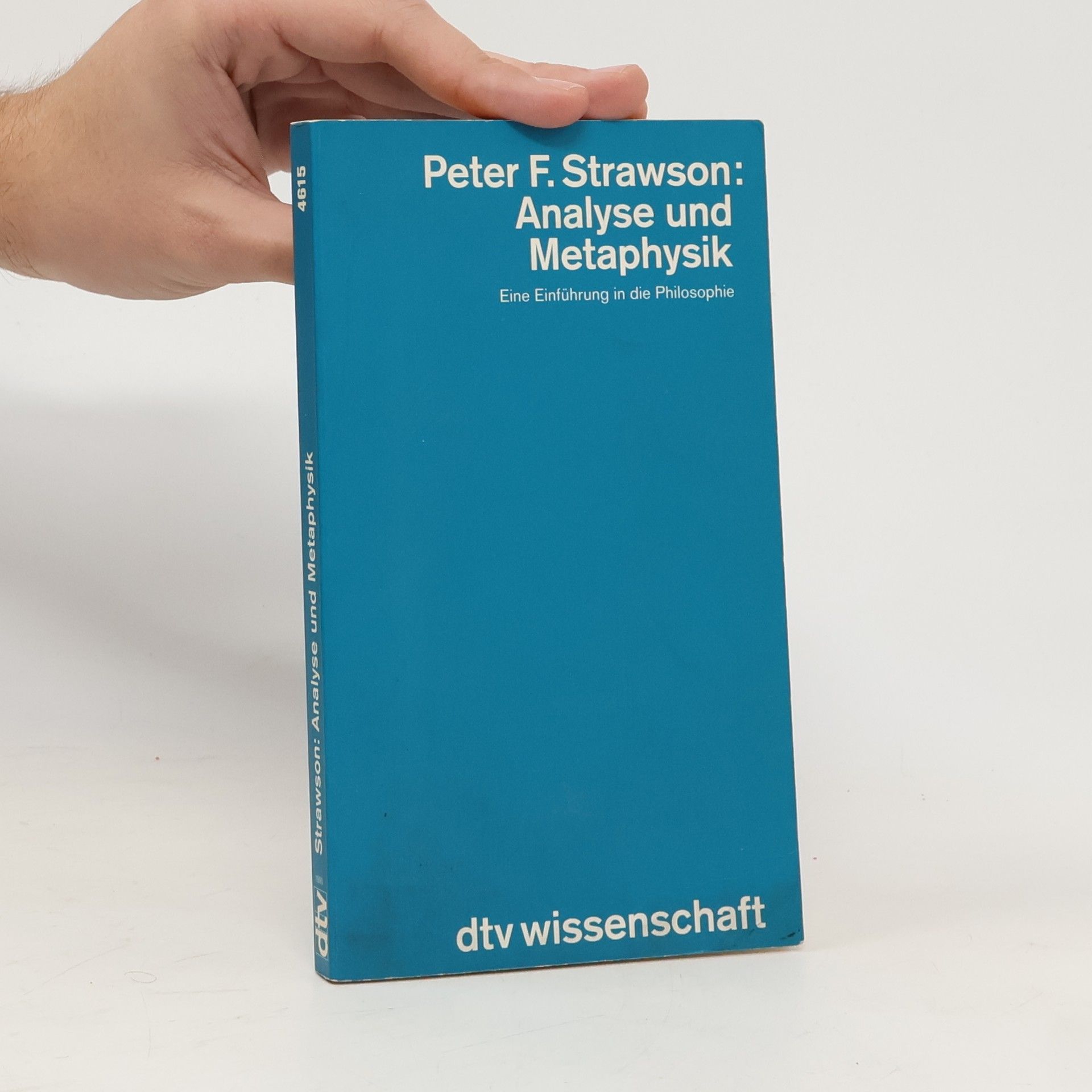Skepticism and Naturalism: some Varieties
- 108 pages
- 4 hours of reading
Peter Frederick Strawson was an English philosopher renowned for his meticulous analysis of language and its connection to reality. His influential essays challenged traditional metaphysical views, emphasizing the significance of ordinary language in philosophical inquiry. Strawson's approach prioritizes precise thinking and the systematic deconstruction of complex philosophical problems. He is remembered for his ability to clarify philosophical discourse and ground it in clear, reasoned argument.






Sir Peter F. Strawson (1919) patrí medzi najoriginálnejších európskych filozofov druhej polovice 20. storočia. Od roku 1947 pôsobil na univerzite v Oxforde a venoval sa najmä skúmaniu vzťahov medzi logikou a jazykom. V knihe Analýza a metafyzika nájde čitateľ texty jeho prednášok z rokov 1968 – 1987, možno ju považovať úvod do filozofie, pričom autor postupuje od globálneho k lokálnemu, od všeobecného k špecifickému, od hrubého náčrtu k podrobnej analýze.
Eine repräsentative Auswahl von 852 Dreizeilern der klassischen japanischen Lyrikgattung, in einer bewährten, eng den Originalen folgenden Übersetzung. Vertreten sind die bedeutendsten Dichter Japans (und viele andere); inhaltlich gliedert sich der Band in die Themen: Neujahr, Frühling, Sommer, Herbst und Winter.
Peter Strawson (1919-2006) was one of the leading British philosophers of his generation and an influential figure in a golden age for British philosophy between 1950 and 1970. The Bounds of Sense is one of the most influential books ever written about Kant's philosophy, and is one of the key philosophical works of the late twentieth century. Whilst probably best known for its criticism of Kant's transcendental idealism, it is also famous for the highly original manner in which Strawson defended and developed some of Kant's fundamental insights into the nature of subjectivity, experience and knowledge - at a time when few philosphers were engaging with Kant's ideas. The book had a profound effect on the interpretation of Kant's philosophy when it was first published in 1966 and continues to influence discussion of Kant, the soundness of transcendental arguments, and debates in epistemology and metaphysics generally. This Routledge Classics edition includes a new foreword by Lucy Allais.
Aufsätze zur Sprachphilosophie
An Essay in Descriptive Metaphysics